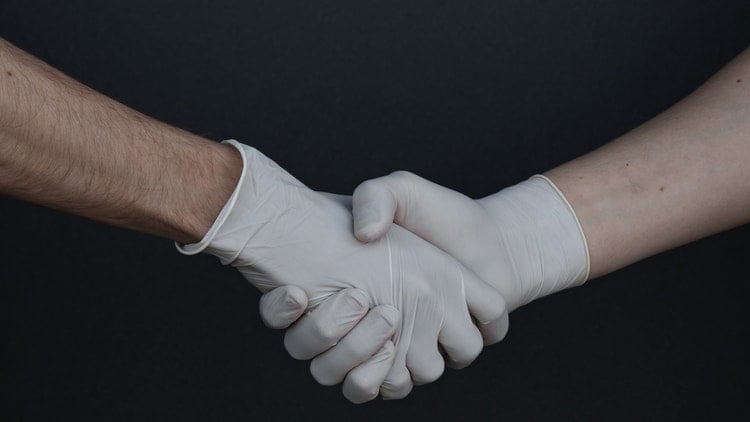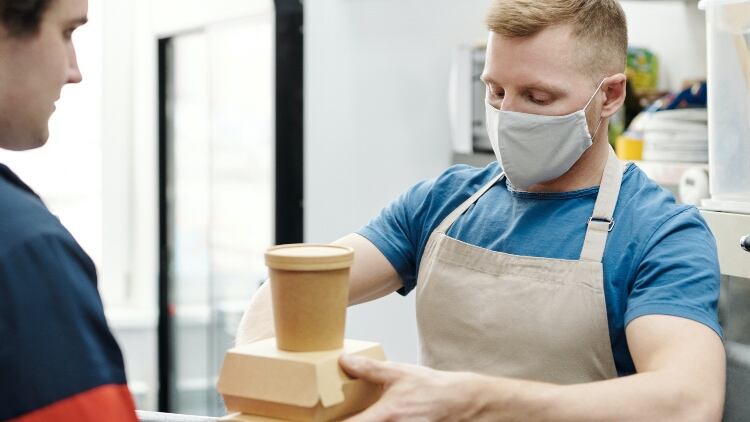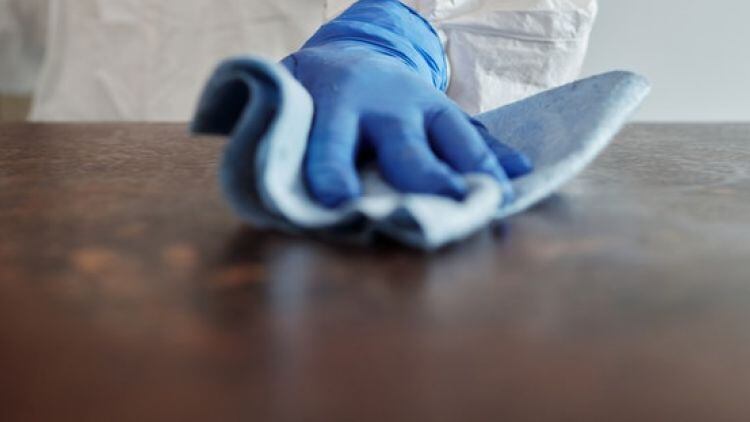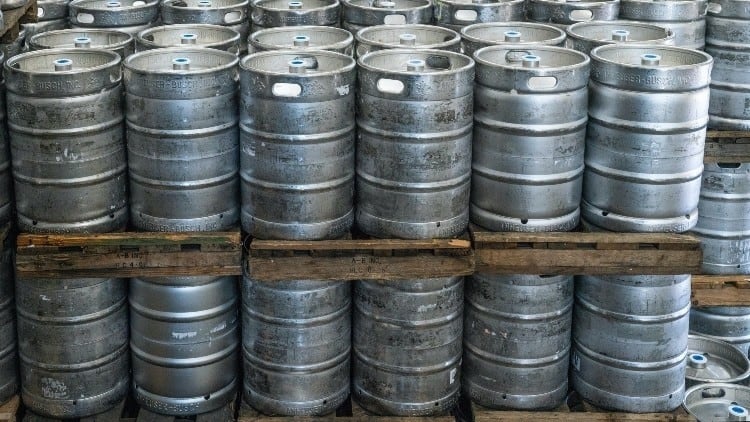The Government announced it was planning on reopening some pubs this summer (from 4 July) but these venues must be ‘Covid-secure’.
While the exact details of what this may entail have yet to be revealed, operators can plan for every hygiene eventuality by deep cleaning their pubs before reopening.
Rigorous and extensive hygiene measures must be taken when pubs do reopen to help minimise the risk of virus transference.
Operators and trade bodies reveal their top tips on deep cleaning and maintaining these measures when customers return.
In-depth cleaning regimes and adhering to distancing rules are two of the main themes operators should consider when reopening, trade body UKHospitality (UKH) outlines.
The guidance says pubs should consider the flow of staff and customers as part of the risk assessment.
All staff should wash their hands immediately before leaving home and when arriving at work and managers should remind everyone to wash their hands again at the beginning of every shift.
Operators should put return-to-work interviews in place. They should also undertake heightened disinfection for all frequently touched areas such as tables, chairs, counter tills and card machines.
Customers should keep the minimum safe distance from bar staff and other customers waiting in the queue through tape marks on the floor and signage.
Operators should take into account directional movement of customers ordering drinks at a till point then moving to a second place to collect drinks, and restrictions on customers remaining at the bar after ordering and receiving their drink should be considered.
Customers should be discouraged from returning empty glasses to the bar and should be collected by staff from tables.
For outside areas, pubs should think about regular patrols of outside areas, smoking or vaping areas and look at the restrictions required for children’s play areas.
Toilets should be an area that adheres to distancing rules and all staff should be aware of this.
When it comes to food, the guidance suggests individually wrapped condiments and sauces should be offered on request and put with plated food, not left on tables.
Similarly, cutlery should be given to the customer rather than it being left on the table or for customers to collect themselves.
Adjusted plans
Table plans should be adjusted to adhere to distancing rules and customer contact with commodities such as menus, trays and napkins should be limited so cleaning or replacement is carried out after each use.
Disinfectants and sanitisers that are effective against bacteria should be used, as well as cold and flu viruses, as recommended by current Government advice.
Kitchen cleaning regimes should reflect the need to reduce risk from coronavirus, as well as maintaining all normal expectations relevant to a food business regarding hygiene.
Movements of staff should be controlled to maintain mandated distancing measures where possible, such as one person at a time allowed in the chilled stores or dry stores.
Hand-washing glassware, plates and cutlery should be avoided where possible with glassware washed separately from plates and cutlery.
UKH said it envisages compliance checks will be carried out by enforcement bodies such as environmental health officers, which will be responsible for checking risk assessment, evidence and operational practices.
Hygiene experts Food Alert advises operators to concentrate on surfaces that are high-touch area, when it comes to their cleaning regime.
Client services director John Haswell says: “We have been busy working with pub operators, such as Fuller’s, to help them prepare a new raft of hygiene procedures so that both staff and customers are confident the pubs in which they work or visit are Covid-19 safe.
“One of the key considerations for publicans as they prepare to reopen is to identify all the surfaces in their venues that have human contact, especially those that, in the past, were overlooked such as the underneath of seats, where you naturally put your hands to pull a chair in. These, plus more obvious hazards such as outdoor benches, door handles, tables, stair bannisters, toilet seats, etc. are all areas that will need to be regularly cleaned.
“Operators also need to consider swapping soft furnishings for easy to clean furniture, which will remove an element of comfort but make cleaning more effective and quicker.”
But, to get customers back in the doors in the first place, licensees need to ensure adequate staff training has been undertaken.
Haswell adds: “However, the biggest challenge operators face is gaining customer and employee confidence. They need to make sure people feel and can see that every precaution has been taken to protect their health and safety, while at the same time delivering a positive customer experience.
“If staff are confident, customers will feel reassured too. This means making sure that training is provided and everyone has access to adequate PPE (personal protective equipment), such as disposable gloves, face masks (where appropriate) and virus effective sanitisers.
“While we wait further direction as to whether the wearing of PPE will be made mandatory, we cannot underestimate the important visual message it may give to nervous staff and customers. The most important aspects, however, will be adherence to the basic principles of hygiene such as regular hand washing and surface cleaning, and disinfection.”
Fuller’s is looking at a range of control measures in readiness to reopen, according to group health and safety manager Lee Marshall.
Operator regimes
He says: “Cleaning will be an important part of an overall approach to reduce the risk of infection from Covid-19 for both our team members and our customers. As such, we are reviewing our current chemical cleaners and processes to ensure these are effective against the virus.
“Deep cleaning and maintaining hygiene standards are just two of a number of controls that will give confidence to our teams and our customers when we are allowed to reopen. In this new era of operations, it is going to be very important for all hospitality operators to have hygiene as a primary focus in order to demonstrate it is not taking the risk of repeat infection lightly.”
Fellow multiple operator BrewDog sets out how it is going to reopen, taking extra cleaning precautions and technology into account.
The 10-step plan includes contactless ordering via its order to table Hop Drop app, staff wearing face masks and gloves at all times, easily accessible sanitiser stations for all, and clearly visible social distancing signage and guidelines.
It also states its proposals encompass amended furniture layouts to create appropriate space, staff monitoring capacity continually, cashless payment only via its app or card payment, single-use menus in use, physical table screens available on request and surface cleaning every 15 minutes.
Similarly, pub giant JD Wetherspoon (JDW) outlines the measures that will be in place when the doors reopen.
Hygiene measures include screens at the till point and screens to create seating areas where it is not possible to separate tables to social distancing requirements.
Gloves, masks and protective eye wear will be available for staff and they will be able to elect whether they wear them or not, subject to Government guidelines.
There will be an average of 10 hand sanitiser dispensers around the pub, including at the entrance for customers and staff to use.
Every member of staff will need to complete and sign a daily health assessment questionnaire to confirm they are fit to work, including having their temperature taking using a digital thermometer.
Dedicated staff will monitor the pub at all times in order to maintain social distancing standards and a member of staff will be on the door at peak times.
There will be a separate entrance and exit where possible at the pubs and customer entry and exit will be marked out by floor stickers and/or barriers and there will be clear printed information providing guidance for customers as they enter.
Each pub will have a member of staff working full time (two or more staff per pub to cover all opening hours) to sanitise all the contact points during opening hours, including door handles, allergen information screens, card payment machines and handrails.
Customers will be asked to use the JDW order-and-pay app where possible or, pay at the bar using a credit or debit card and contactless, although cash will also be accepted.
Staff will hand over all drinks by holding the base of the glass and, when ordered by the app, they will be delivered to the table on a tray and placed on the table using the base of the glass.
Food will be delivered to the table by a member of floor staff and pub menus will be slightly reduced and will provide sachets of condiments rather than bottles.
Usual opening hours will remain the same (on average, this is 8am until 12midnight Sunday to Thursday and 8am to 1am Friday and Saturday) and all staff will receive full training and briefing on the new way of running the pubs.
Taking steps to ensure every hygiene procedure has been covered can help instil customer and staff confidence and help revenue return.
Top tips
Here are the Food Standards Agency steps for cleaning effectively before and during reopening:
- Notify your local authority of your intention to restart operations
- Notify your local authority of any change to the business activities you are registered for. This includes the introduction of any new delivery or takeaway service
- Consider any risks to food safety introduced by changes to procedures
- Review and document new procedures in relation to takeaway or delivery services, eg, allergen management, cook-chill-reheat, temperature control awaiting collection or during delivery
- Manage risks of cross-contamination between raw and ready-to-eat foods
- Ensure food packaging for takeaways and delivery is food grade, and appropriate for the purpose and food type
- Store food packaging hygienically. Check that the hygiene and integrity of any packaging stored through a period of closure has been maintained and dispose of unsuitable packaging
- Check staff are fit for work and wearing clean work clothes
- Consider adjustments to fitness for work procedures to take account of Covid-19 symptoms. Initial telephone interviews with staff may be beneficial in assessing fitness to work
- Review the Government advice on use of PPE (personal protective equipment) outside of medical and care settings
- If your business requires staff to wear PPE, check you have adequate stocks available
- Review any PPE laundering procedures, where appropriate, to ensure PPE worn by staff can be safely changed and cleaned regularly
- Ensure any changes to procedures are communicated to staff and training is provided where appropriate, including training of any new staff
- Ensure that your registered waste carrier services are running and available as required, to ensure there is no build-up of waste on-site
- Check food preparation areas are clean and disinfected (this includes work surfaces, equipment and utensils)
- Check all areas are free from evidence of pest activity
- Check hand washing and cleaning materials’ availability (this includes soap, sanitiser and paper towels)
- Check hot and cold running water is available at all sinks and hand wash basins
- Check your fridges, chilled display equipment and freezers are working properly
- Check your other equipment (eg, oven) is working properly
- Check raw materials and ingredients
- Check allergen information is accurate and available for all products
- Review Government advice on social distancing in the workplace for staff, provide two metres if possible and consider steps to minimise staff and customer interactions
- Increase ventilation but remember to assess the possibility to do this without introducing new risks or hazards to food safety and hygiene
• Read the latest digital edition of The Morning Advertiser – for free – by clicking here.




